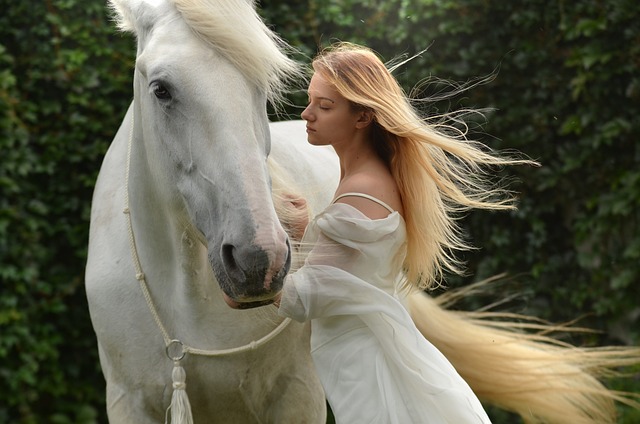Spis Treści
How Many Kilograms Does a Horse Eat Per Day?
When it comes to the daily dietary needs of horses, understanding how many kilograms of food they require is crucial for their health and well-being. Horses are herbivores and have unique digestive systems that require a specific balance of nutrients. In this article, we will delve into the topic of how many kilograms of food a horse should consume per day, taking into account various factors that influence their dietary requirements.
Factors Affecting a Horse’s Daily Food Intake
Before we dive into the specific numbers, it’s important to note that a horse’s daily food intake can vary based on several factors. These factors include:
- Age: Younger horses, such as foals and weanlings, have different nutritional needs compared to adult horses.
- Weight: The weight of a horse plays a significant role in determining its daily food intake.
- Activity Level: Horses with higher activity levels, such as those involved in intense training or competition, may require more food to meet their energy demands.
- Breed: Different horse breeds may have varying metabolic rates and dietary requirements.
- Health Conditions: Horses with certain health conditions, such as metabolic disorders or dental issues, may require special diets or adjustments in their food intake.
Understanding a Horse’s Digestive System
Before we discuss the specific amount of food a horse should consume, it’s essential to have a basic understanding of their digestive system. Horses are herbivores with a unique digestive system designed to process large amounts of fibrous plant material. Here’s a brief overview of their digestive process:
- Ingestion: Horses consume food through grazing or being fed by their owners.
- Mastication: The food is chewed and mixed with saliva, which aids in the initial breakdown of carbohydrates.
- Stomach: Unlike humans, horses have a relatively small stomach that can only hold a limited amount of food. The stomach primarily digests proteins.
- Small Intestine: The partially digested food moves into the small intestine, where further digestion and absorption of nutrients occur.
- Cecum and Large Intestine: The cecum and large intestine are responsible for fermenting fibrous material and extracting nutrients from it.
- Elimination: The undigested waste material is eliminated through the rectum in the form of manure.
Recommended Daily Food Intake for Horses
The recommended daily food intake for horses is typically expressed as a percentage of their body weight. As a general guideline, horses should consume approximately 1.5% to 2.5% of their body weight in food per day. This includes both forage (hay or pasture) and concentrates (grains or pelleted feeds).
Let’s break down the recommended daily food intake based on the type of food:
1. Forage
Forage, such as hay or pasture, should make up the majority of a horse’s diet. It provides essential fiber and helps maintain a healthy digestive system. The recommended daily intake of forage is approximately 1% to 2% of a horse’s body weight.
Here’s an example calculation:
| Horse Weight | Forage Intake (1% – 2%) |
|---|---|
| 500 kg | 5 kg – 10 kg |
| 600 kg | 6 kg – 12 kg |
| 700 kg | 7 kg – 14 kg |
It’s important to note that the quality of the forage, such as its nutritional value and fiber content, can vary. Consulting with a veterinarian or equine nutritionist can help determine the appropriate amount of forage for your horse based on its specific needs.
2. Concentrates
Concentrates, including grains and pelleted feeds, are often added to a horse’s diet to provide additional energy and nutrients. The recommended daily intake of concentrates varies depending on the horse’s weight, activity level, and overall nutritional requirements.
As a general guideline, concentrates should make up no more than 0.5% to 1% of a horse’s body weight per day. Here’s an example calculation:
| Horse Weight | Concentrates Intake (0.5% – 1%) |
|---|---|
| 500 kg | 2.5 kg – 5 kg |
| 600 kg | 3 kg – 6 kg |
| 700 kg | 3.5 kg – 7 kg |
It’s important to note that concentrates should be introduced gradually into a horse’s diet to prevent digestive upset. Consulting with an equine nutritionist can help determine the appropriate type and amount of concentrates for your horse.
Monitoring and Adjusting a Horse’s Food Intake
While the recommended daily food intake provides a general guideline, it’s crucial to monitor your horse’s body condition and adjust their food intake accordingly. Here are some tips:
- Regularly assess your horse’s body condition score, which evaluates their overall body fat and muscle distribution. Adjust the food intake if necessary to maintain a healthy body condition.
- Consider the horse’s activity level. Horses in intense training or competition may require additional food to meet their energy demands.
- Monitor the quality of the forage and concentrates. Poor-quality forage may require larger quantities to meet the horse’s nutritional needs.
- Consult with a veterinarian or equine nutritionist for personalized advice based on your horse’s specific needs and any underlying health conditions.
Conclusion
Understanding how many kilograms of food a horse should eat per day is essential for their overall health and well-being. The recommended daily food intake for horses is typically expressed as a percentage of their body weight, with forage making up the majority of their diet.


















